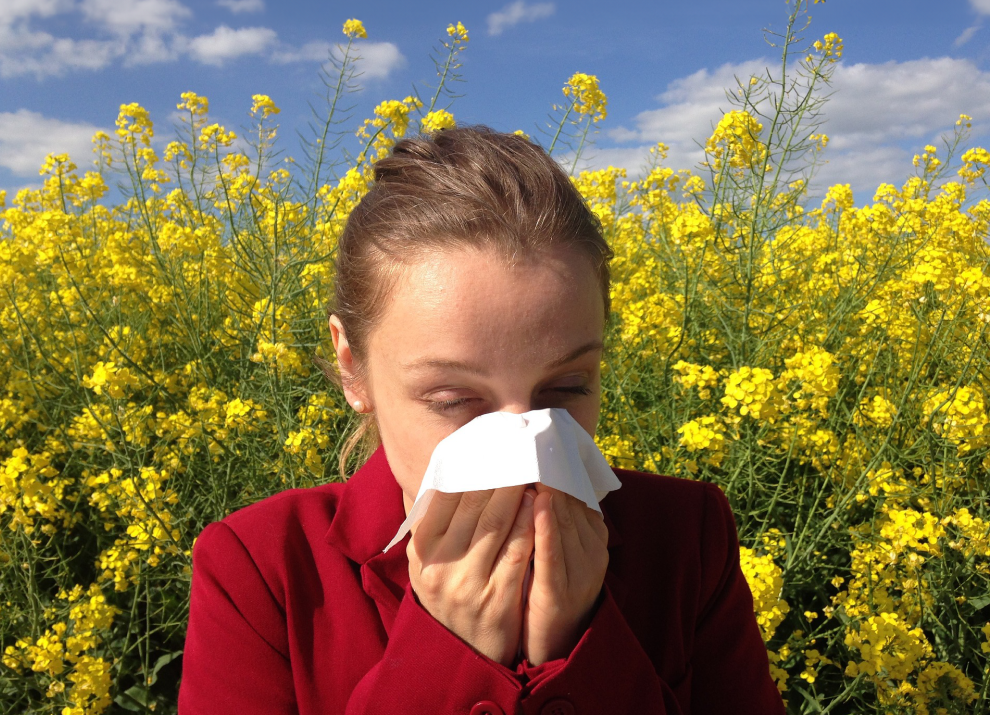Many people struggling with sinusitis wonder what they can do to minimize their chances of developing another sinus infection. It turns out that there are a number of simple things that can be done to help promote sinus health. This includes such steps as sleeping with two pillows to keep the head elevated, taking the mucus thinner guaifenesin when needed, and avoiding the use of scented products in the home, such as dryer sheets and air fresheners.
The starting point is looking for ways to minimize or prevent nasal stuffiness and congestion, and to improve mucus drainage. This is because being congested for an extended time, which means nasal passages are inflamed, can lead to sinusitis. When the nasal passages are inflamed or blocked, mucus can’t drain properly from the sinuses.
Most individuals with chronic sinusitis also have allergic or nonallergic rhinitis, even though frequently the cause or trigger for the symptoms is unknown. This is why chronic sinusitis is referred to as chronic rhinosinusitis in medical terminology. Rhinitis can be caused by irritants (e.g., dust) or pollutants in the air, allergens (e.g., tree pollen), hot or spicy foods, some medicines, and for some people even weather changes.
The symptoms of rhinitis are a congested, stuffy, or blocked nose, and frequently also a runny nose, increased mucus, postnasal drip, sneezing, and cough. The good news is that there are some lifestyle changes that help with nasal congestion and other symptoms.
Many of the following suggestions are to minimize the use of scented products and increasing the air quality in the home. This is because scented products and fragrances release many chemicals that cause nasal inflammation, and can result in rhinitis symptoms.
Researchers call fragrances and the outgassing of chemicals in products we use air pollutants. Air pollution can come from the outside (smoke, chemicals, vehicle exhaust) or it can be inside the house (fragrances in our personal care products, air fresheners, outgassing of chemicals from our furniture and other items, scented dryer sheets, essential oils, pesticides). Air pollution, both inside and outside the home, can cause nasal inflammation.
Lifestyle Tips for Sinus Health
PERSONAL CARE:
- Sleep with 2 or more pillows. Being semi-reclined (and not flat) when sleeping results in better nasal drainage.
- Use an ordinary saline nasal rinse once a day, as needed, to help with nasal congestion.
A premade saline mist spray (e.g., Arm and Hammer simply saline mist) helps to relieve minor congestion, such as in a stuffy workplace.
- Use a 12-hour 1200 mg guaifenesin non-prescription tablet (e.g., Mucinex) at night, when needed. It acts as a mucus thinner.
- Use antihistamines (for allergies) and nasal corticosteroid sprays (for nasal polyps) as needed.
- Limit your use of nasal decongestant sprays. If using them - don’t use more than 3 days in a row. Using them more can result in even worse nasal swelling called “rebound congestion”.
- Shower at night to wash away allergens.
- Use unscented personal care products as much as possible (e.g., unscented deodorant).
- Avoid cigarette smoke and smoke-filled air as much as possible.
Firefighters are the occupation with the highest incidence of sinusitis. All that smoke!
- Cut back on the ingestion of alcohol if you are very sensitive to it. Alcohol causes temporary nasal inflammation in everyone, but for some persons the swelling lasts a long time and can cause nasal symptoms.
- Use Lanto Sinus at the start of a sinus infection.
HOME:
- Avoid the use of scented products in the home, including air fresheners, scented candles, essential oils, incense, and scented dryer sheets (the fragrance stays on the clothes).
- Frequently open windows to air out the home. Use bathroom fans if you have them.
- Consider getting a very good air purifier (e.g., Austin air purifiers were used in NYC after 9/11).
- Change your A/C and heating furnace filters frequently.
- Get a good vacuum cleaner and vacuum frequently.
- Use a kitchen exhaust fan that vents to the outside, especially if cooking with a gas stove or oven.
- Wall to wall carpeting in the home, but especially in the bedroom, is problematic for many – lots of dust and contaminants, which are hard to properly clean.
- Make sure there isn’t a hidden mold problem, and clean up any mold you find. Also, check that there aren’t any drainage issues with water getting into the house and causing a mold problem.
Boost Your Immune System
- Eat a good diet, one that is rich in fruits, vegetables, nuts, whole grains, seeds, and legumes.
- Make sure you get enough vitamin D, whether from supplements or sunlight. Research finds it helps decrease the number of respiratory virus infections a person gets.
- Stay hydrated. Make sure you drink plenty of water each day.
- Get enough sleep. People report feeling “mucusy” and more susceptible to viruses when sleep deprived.
- Get some exercise or physical activity each week (government guidelines say 150 minutes weekly). Even walking, gardening, housework (e.g., vacuuming), playing tennis, and bicycling count.
- Try to minimize stress.
- If your throat feels irritated, try sucking on cough drops, lozenges, drinking tea, or eating honey.
- Suck on a zinc lozenge or tablet if you feel the beginning of an infection. Research shows it may help stop a viral infection.
- Minimize chances of getting a viral infection by washing your hands frequently with soap and water or by using hand cleaning wipes. Many people keep a container of baby wipes in their car, backpack, or bag just for that reason.
In conclusion, there is much you can do to improve sinus health!


Leave a comment: